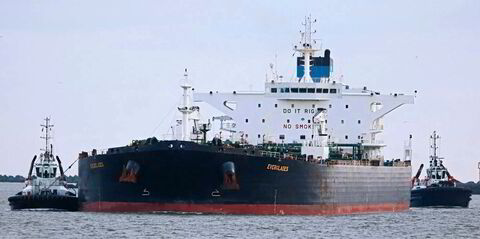Nigeria is to bar all overseas vessels from coastal business.
The Nigerian Maritime Administration and Safety Agency (NIMASA) has this week set out a plan to end cabotage waivers for foreign owners within two to five years.
The Nigerian Content Development and Monitoring Board (NCDMB) is also lining up a $200m facility to support domestic shipping.
The Cabotage Act was passed in 2003 to boost Nigerian companies, but foreign vessels can take part in coastal trade under tight conditions.
Director general of NIMASA, Dakuku Peterside, was cited by This Day as saying the agency was determined to bring to an end waivers.
"Today is a very special day. For a very long [time] indigenous operators...have been very concerned about cabotage waivers; their concerns coming from the fact that it appears that waivers are now the norm instead of the exception.
“I want to say to them NIMASA has ended your cry. NIMASA is on the same page with you; we have decided to bring to an end the waivers’ regime so that cabotage will flourish in Nigeria and Nigerians will benefit from coastal trade.”
Shipbuilding in focus too
Peterside said he had already taken a number of preliminary steps to give Nigerian operators a stronger footing.
In 2017, it informed operators that no crewing waivers would be awarded to foreign companies, except those for captains and chief engineers.
The six-month trial run was a success, he added, doubling the number of Nigerians on vessels.
NIMASA also wants to boost domestic shipbuilding.
Peterside said: "And a lot of our people are concerned that we have not been able to build vessels in this country. But at NIMASA, we have taken strategic steps in the area of shipbuilding, the country is looking at Ajaokuta Steel Mill again and I believe that once Ajaokuta come on stream, it will remarkably improve our fold in shipbuilding."
He added: "Those engagements are going on. It is even going on at the highest level of government.
"We are engaging the office of the vice president to look at the possibility of creating a number of incentives for those who can build vessels in this country and we believe if that is done, a number of persons and entrepreneurs will invest in building vessels in this country.
"We are even working in partnership with NCDMB to that extent. We have commissioned a survey and audit of all building yards in this country...to identify a level of support we can give to enable them [to] come back on stream fully."



